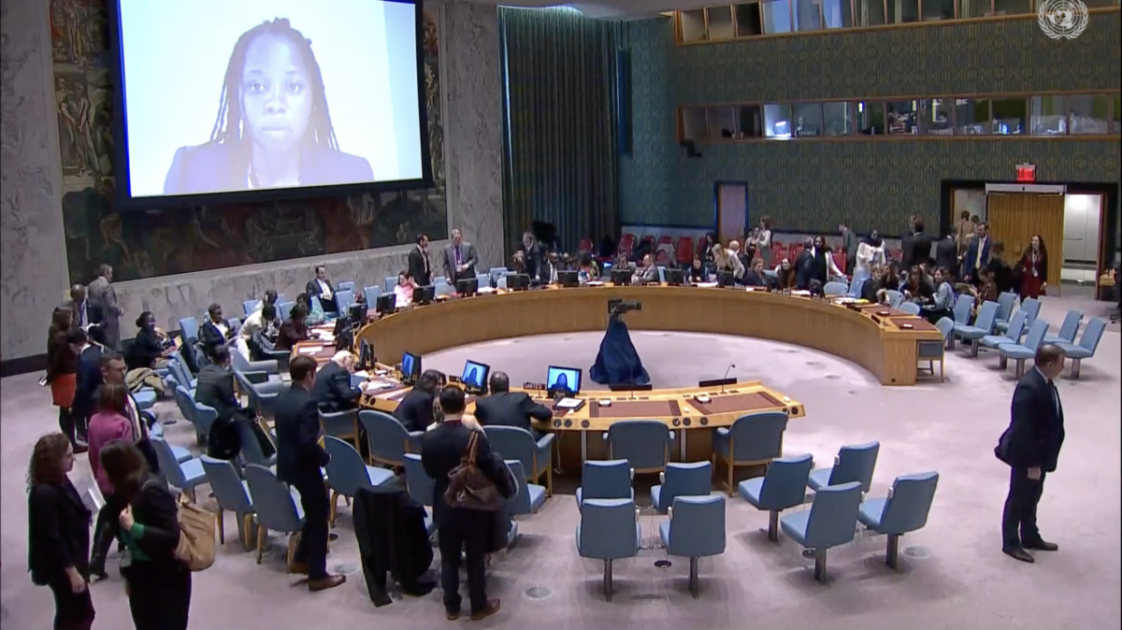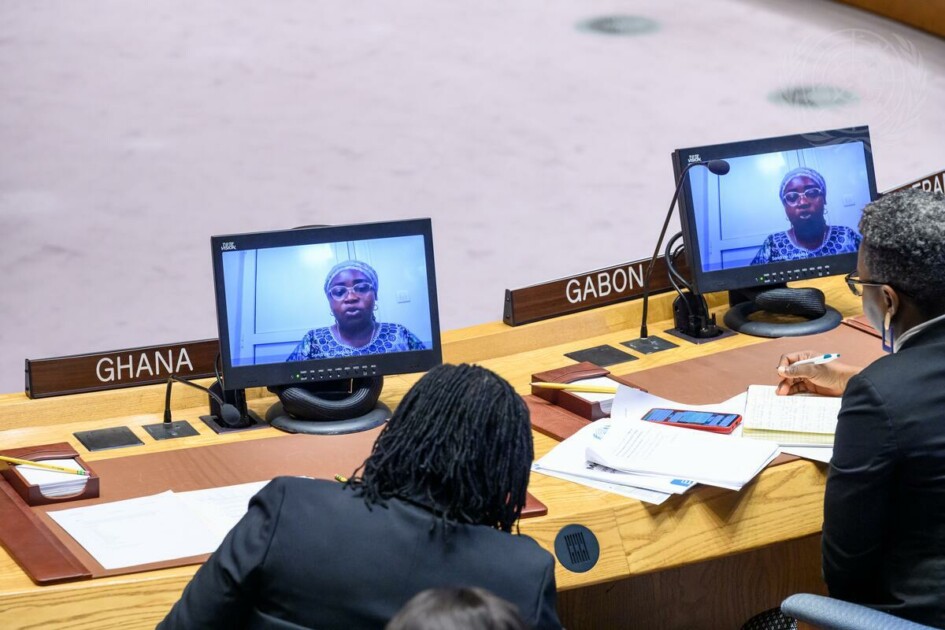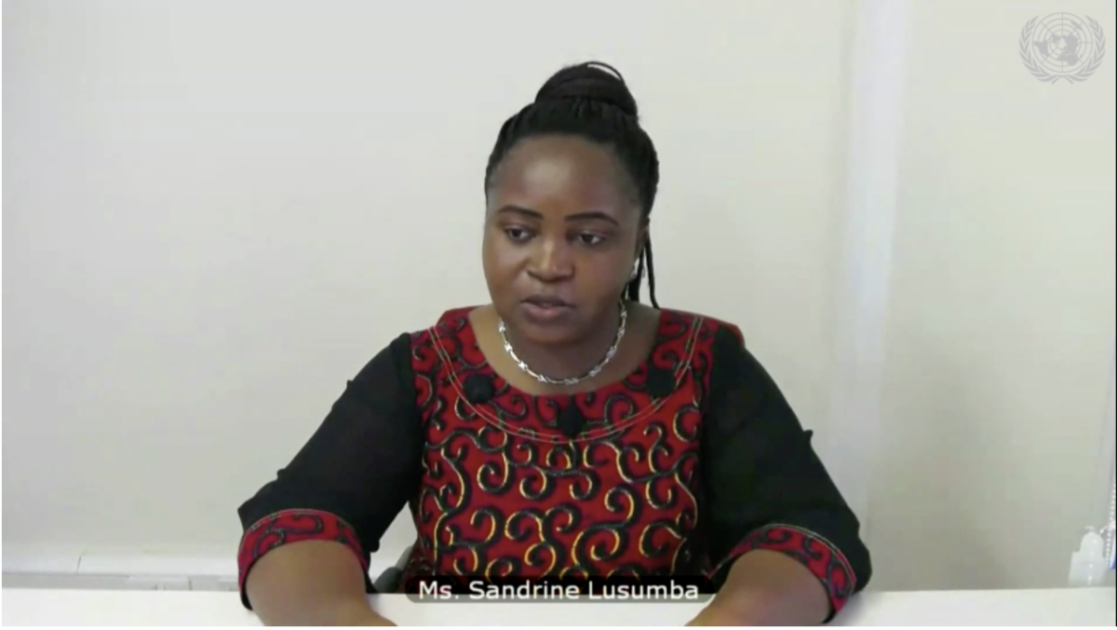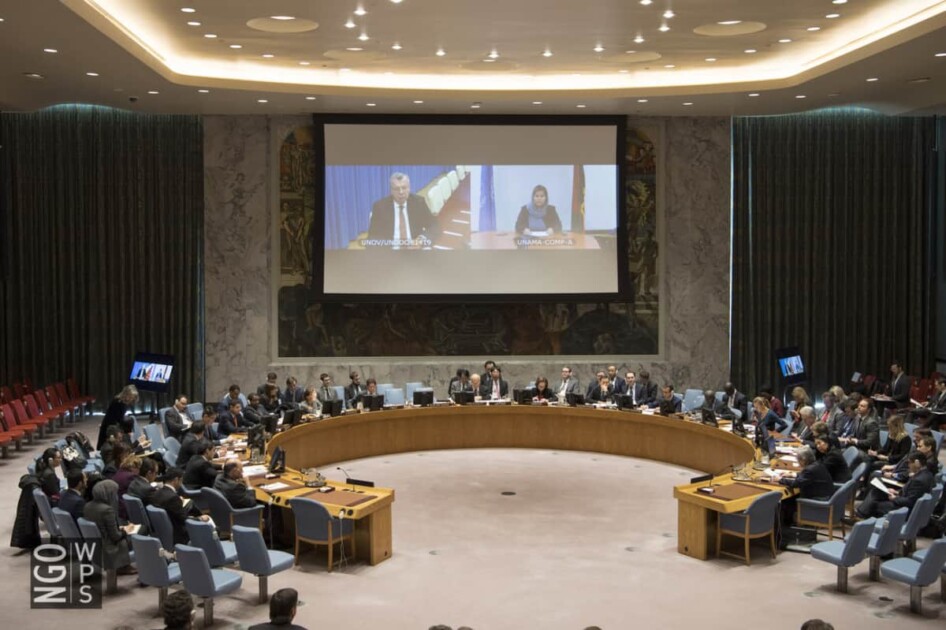Democratic Republic of the Congo
Women in the Democratic Republic of Congo continue to face widespread sexual violence, disease, and displacement in conflict situations arising from clashes between dozens of armed groups. Often, sexual violence and rape are used as terror tactics and weapons of war, and despite the ratification of the Convention on the Elimination of All Forms of Discrimination against Women (CEDAW) and the Women’s Platform for the Peace, Security and Cooperation Framework, women are still largely underrepresented in peacebuilding efforts. Additionally, women activists face rape as a form of torture by government actors who disagree with their political activity. The United Nations Organization Stabilization Mission in the DRC (MONUSCO) aims to provide protection for civilians, including reducing the threat of armed groups perpetrating sexual and gender-based violence, monitoring and reporting on sexual violence and ensuring women’s participation in stabilization and national political dialogue.
Democratic Republic of the Congo
Women in the Democratic Republic of the Congo continue to face widespread sexual violence, disease, and displacement in conflict situations arising from clashes between dozens of armed groups. Often, sexual violence and rape are used as terror tactics and weapons of war, and despite the ratification of the Convention on the Elimination of All Forms of Discrimination against Women (CEDAW), and the Women’s Platform for the Peace, Security and Cooperation Framework, women are still largely underrepresented in peacebuilding efforts.
Additionally, women activists face rape as a form of torture by government actors who disagree with their political activity. The United Nations Organization Stabilization Mission in the DRC (MONUSCO) aims to provide protection for civilians, including reducing the threat of armed groups perpetrating sexual and gender-based violence, monitoring and reporting on sexual violence and ensuring women’s participation in stabilization and national political dialogue.
Current and Past Recommendations to the UN Security Council (Monthly Action Points)
In light of the forthcoming discussion regarding the latest update on the political situation in the Democratic Republic of the Congo (DRC), the Council must continue to discuss and push for the participation of women in the implementation of the Peace, Security and Cooperation Framework, elections, and political processes. The information provided by the Secretary-General on the extent to which women are engaged in implementing the Saint Sylvester Agreement has been non-existent in recent updates (S/2018/174, S/2018/128, S/2017/963, S/2018/655). Furthermore, the Council should demand the urgent implementation of the recommendations of the Commission of Investigation regarding the violent oppression of peaceful demonstrations by the security forces. Violent repression of those peaceful demonstrations persists, often resulting in threats and physical harm to CSOs and journalists, as well as the sexual assault of women participants, and unjust arrest of peaceful demonstrators. According to the Joint Human Rights Office of the UN, August has seen a dramatic increase in human rights violations (515 reported violations in July to 620 in August). The number of violations perpetrated by Government agents has nearly doubled, reaching 66% of all violations including at least 24 extrajudicial executions. The Council must address the closing of civic space and increasing violence in the upcoming briefings by ensuring the provision and appropriate resourcing of gender-responsive services for and access to justice for everyone, including survivors of violence. The Security Council must urge the Government and armed groups to put a stop to those increased violations and ensure accountability for the perpetrators and justice for the survivors. Tensions around elections are likely to escalate further nearing election day, especially if the absence of inclusive and credible solutions are exacerbated by issues such as the electoral calendar, voting machines, and the electoral register. The inclusivity of the elections is already severely undermined by the exclusion of two of the main opposition candidates and could be restricted even more by placing obstacles to women’s participation, such as intimidation, safety, and security. The Council should set a date for its upcoming visit to DRC and, in coordination with the African Union (AU) and Southern African Development Community (SADC), drive efforts to foster a credible dialogue and agreement between the government and opposition on the main issues around elections. The Council should call on the Government and MONUSCO to listen to the population’s concerns, especially those of women and youth, and effectively address the continued violence.
Relevant Resources









